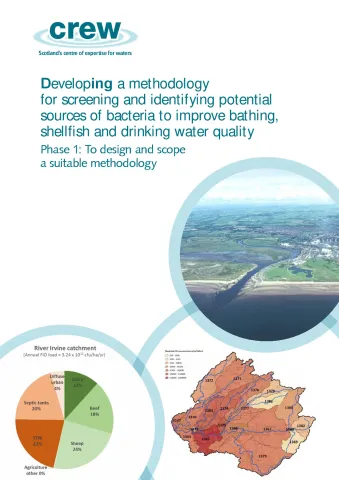Although the quality of water in Scotland is generally very good, bacteria can pose a risk to human health via shellfish, bathing and drinking water quality issues. Faecal indicator organisms are of primary concern, since they are the key microbial water quality compliance parameters – specifically, Escherichia coli and intestinal enterococci under the revised Bathing Waters Directive and Shellfish Waters Directive. These bacteria, which are generally non-pathogenic, are excreted by all warm-blooded animals and their presence indicates an environmental pathway contaminated with faecal waste which may be contributed to by a pathogen carrier(s).
The aim of this work is to design an effective faecal indicator organism screening methodology for Scotland that could be developed quickly and at a reasonable cost, that will enable, within acceptable limits:
- Prediction of current faecal indicator organism loadings (ideally concentration & flow) being delivered to specific receptor waters under different flow conditions and in different seasons
- Source apportionment of overall FIO loadings to sources within catchments
- Estimation of ‘zone of influence’ of individual sources within catchments
- Estimation of impacts of interventions to reduce fluxes from sewerage- and/or agricultural-related sources.
| Attachment | Size |
|---|---|
| Bacterial screening phase 1 final report | 5.87 MB |
